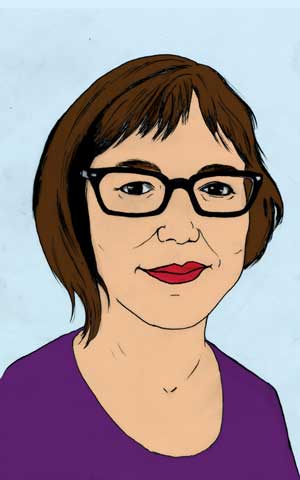Happy New Year! Last October I was invited to moderate a panel titled: “Is Art our Last Safe Place?” The general topic was whether art could be healing in times of war, poverty, starvation, overpopulation …you know, all that stuff that just keeps getting worse. The conversation drifted into whether artists have a responsibility to respond to worldwide oppression and address it in their artwork.
Most of the audience and panel appeared surprised to consider that artists have any responsibility to address any particular thing in their art. Artists shouldn’t have to do anything! I was somewhat on the fence; I used Picasso’s masterpiece Guernica, as an example to illustrate how the artist must have felt the need to respond to the war at the time; Picasso is not known as a political artist per se.
I find myself now thinking about this topic again, with our new president and his cabinet and the frightening times that surely lie ahead. If I were an artist today, making art like I used to, I wonder if I would be willing to switch gears and start addressing all this in my work. I was an artist during the Bush years; I confess, I don’t recall any anti-Bush paintings or even any war protest posters made by my hand. I was busy painting my fucked-up family, video-taping my alcoholic father, playing a therapist, all in the name of art.
I haven’t made art now for 10 years—as long as I’ve been writing these letters. So I wonder, what if I were making art now? Would I turn my video camera away from my own personal problems and suddenly start making art about the real world that exists outside myself?
Just as much as I don’t like being censored, I don’t like being told what to do. Since I don’t create art anymore, I really can’t answer that question.
Did Picasso paint Guernica because he felt he should? I don’t think so. That painting wouldn’t look like it does if he was just going through the motions (and we do know Picasso was capable of that). Making art is about passion. Picasso felt passionate about the war, about the world falling apart before his eyes. He had to make Guernica. He had to for himself.
As for me, my fucked-up family has now dispersed and my parents are long-gone. I’m bored with me as my favorite muse. Artillery is now my art, and what matters as an editor is very different from what mattered when I was making art.
In the end, if you’re an artist you must follow your heart, and wherever that takes you, you must paint it, write it, sculpt it, smear or spray it. But for us—the public, the citizen, this magazine—we’ll be keeping an eye out for those who feel moved to engage on the urgent questions of the day.
For this issue, we had assignments already in, but were able to squeeze in a few pieces from regular contributors who felt compelled to deliver on topics they feel passionate about. Tucker Neel rose to the occasion to talk about political caricature. Josh Herman extols the current importance of graffiti, and our Guest Lecture is Harry Gamboa Jr., who weighs in on the LA art world encroaching into the Boyle Heights neighborhood, and how that is affecting hundreds of families in East Los Angeles.
The art world is affected by what’s happening in the real world. And Artillery is responsive to that. I’m still on the fence about whether art can really change things, heal things. But at times like this, one can’t be silent.


